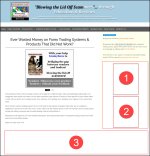- Home
- Forex Articles
- Forex Trading
- Wealth Management : What All Investors Should Know About Investment Funds
Wealth Management : What All Investors Should Know About Investment Funds
by FinanceAttitude.com

Investment funds are one of the best-recommended options, while it approaches wealth management. They are widely available at a number of price points, making them ideal for investors while they are expert or novice in investment. Investors can choose to invest in funds, in the industries and products they are interested in. They also have the option of the funds that are timed according to their individual needs, especially if they are approaching retirement age. While they are relatively straightforward, it is still important to understand what the investment fund is about and how it works.
What is an investment fund?
An investment fund, also known as a managed fund, is a wealth management strategy used to invest with other people to bring financial benefits to the group. These funds are held by the public, including mutual funds, closed-end funds, and trading funds.
They are privately sold in the form of hedge funds or private equity funds, created for the region they serve. This can include funds that tailored to a particular geographic region, industries, or government affiliation.
What are the advantages?
A key benefit is the diversification of the portfolio. No financial adviser will advise clients not to put all their eggs in one basket. They offer this opportunity because thousands of options are available there. Investors can invest money in a variety of industries and sectors, resulting in a healthy, diversified portfolio.
Another benefit is the access to a wide range of assets. This is helpful when investors want to diversify, but can’t due to certain restrictions such as international market access restrictions or financial limitations. Investment funds are also cost-effective. Many first time investors start from one and add to their portfolios over time. Most importantly, these funds can produce a lot of wealth. The key is to select carefully and ensure that they work with other funds in the portfolio to generate the most of the wealth.
What are the risks involved?
There are some certain risks with any investment. One is to invest in unprofitable or under-performing funds. The risk of investment falling is always there, even if it starts with huge profits. In addition, certain asset classes held by investment funds may have their own set of risks. For example, technological shares may have value fluctuations as new products become available. The success or failure can affect the shares.
They also have to pay a fee to manage the fund. Fund managers can charge the fees in a variety of ways. They can assess the cost as a fixed percentage of the value of the funds. The problem arises when the value of the stock begins to grow, thus increasing the cost to meet. Managers can also offer fixed rates to their clients. These costs remain constant throughout the life of the investment. In addition, some managers deduct expenses from the Fund's assets, which may reduce the overall value. A cost assessment is a prerequisite to determining which funds will be the most profitable.
There are many options for wealth management. The key is to choose funds that are favorable to a particular time frame, attractive to the individual and meet the desired level of risk. Personal values and beliefs can also play a role. It is important to conduct as much research as possible before moving forward with any specific strategy.
To view the original version on Finance Attitude, visit: FinanceAttitude.com





